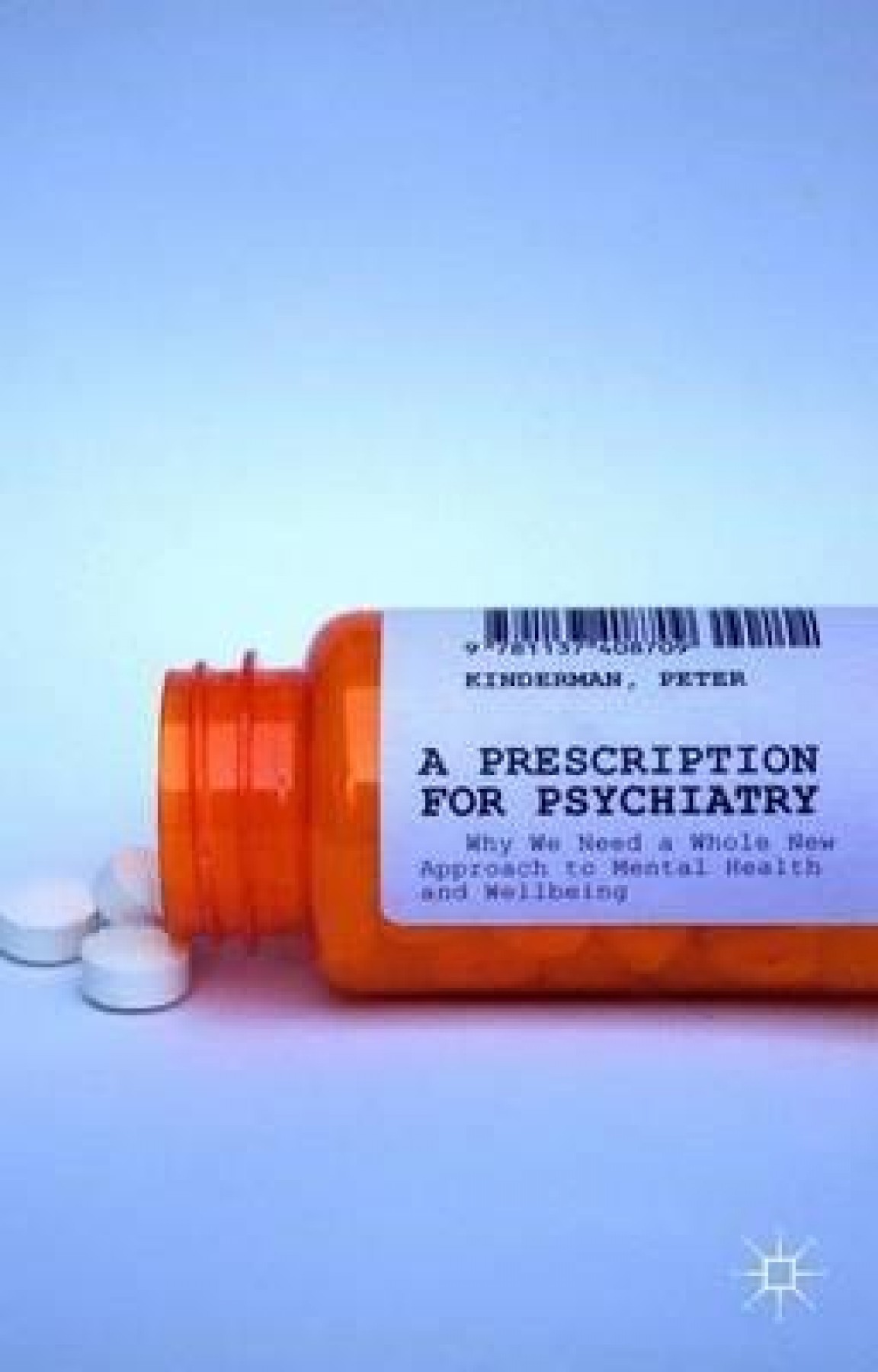A Prescription for Psychiatry is an inside job. Author Peter Kinderman has written a manifesto for using the psychosocial model to address mental health in direct opposition to the alarmingly unhelpful disease model we have inherited. Kinderman draws battle lines between the biological approach to psychiatry, steeped in the medical tradition of pathogenesis, diagnosis and illness, and the social psychiatry model much more at home in understanding how life circumstances influence the way we make sense of and interpret the world. And Kinderman has some personal and professional insight into this debate; he is a practicing clinical psychologist, was twice the chair of the British Psychological Society’s Division of Clinical Psychology, is a line-manager of psychiatrists, psychologists and GPs, is a sibling of someone with serious mental illness, and has himself used mental health services. Kinderman knows as much as anyone could know on the topic of mental health and illness, and his advice is plain: Drop the language of disorder and adopt a psychosocial understanding.
Kinderman says the determinants of mental health are largely the events and circumstances of people’s lives - for example, life events are far more predictive of future depressive episodes than genes associated with serotonin production. Kinderman also points to the rise of suicide following the global financial crisis, the association between abuse and mental illness, and the few studies that pit biological and social explanations head to head for explanatory variance (social explanations claim most of the variance in these studies). It is interesting to note that only two of the disorders in the DSM (PTSD and adjustment disorder) are directly ascribed to external circumstances, which draws attention to the fact that external factors are plainly omitted in every other diagnostic category our mental health system currently uses.
Personally, I find his model of mental health refreshing and accurate; while biology (nature) and events (nurture) are both inputs into our psychology, events are the overwhelming determinant. The brain as a learning organ constructs ways of seeing the world and interpreting events which produces psychology, which then goes on to influence behaviour, and mental health or mental illness somewhere on the continuum is the outcome. One of the most helpful analogies he uses is a reinterpretation of Plato’s’ dictum to ‘cut nature at its joints’, meaning that we should classify the natural world accurately. This has been taken too far, or applied where it should not, Kinderman argues, for instead of being a chicken, say, with clear categories and different parts, mental health is more of a sausage with far less clear joints and cut-offs. Vegetarians might not find this explanation as helpful as I did.
I also enjoyed the nod to Wilkinson and Pickett’s Spirit Level argument, but then I would as a social reformist at heart. They weren’t the first, but perhaps were the most empirically articulate, to point out mental health problems are highest among nations with the highest inequality. Kinderman is not shy in suggesting that social and political changes are likely to make much more of a difference overall than anything individuals can do alone.
But this is not all about throwing out biomedical science in favour of blind compassion - both approaches are required. And to be more accurate, a psychobiosocial model is called for, and a resulting collaborative, team approach to care is prescribed. In a real show of maturity, Kinderman recommends that his own field take less of a leadership role in treating mental illness, in favour of having a collaboration of professionals from the biological (medical psychiatry), social (social and community workers), and psychological (clinical) approaches. Teams based in community settings would be most helpfully guided by GPs and family doctors - not psychiatrists - as they have more understanding of the ecology of individual life circumstances and are best placed to determine what levers should be pulled to help intervene in the individual’s system.
The strapline for A Prescription for Psychiatry is: why we need a whole new approach to mental health and wellbeing. To see as good a reason as any other for Kinderman’s prescription, we should be able to recognise the many benefits, but importantly the defined limitations, that the disease model provides.
“The need for reform in mental health services is acute, severe, and unavoidable”; to progress any further Kinderman recognises that disruption to the current system is necessary. This disruption can be led from within the profession of psychiatry itself, but change must come regardless.
Reviewed by Carsten Grimm, Mental Health Promoter, Mental Health Foundation
I Need Help Now
Help for you or someone important to you
More

